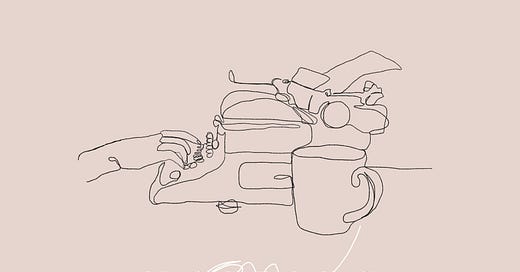Every month I am publishing a piece from a contemporary artist I admire. This month, I am thrilled to share an essay by Erin Rose Blacque Belair. “On Where The Love Lives” explores memory and ritual and the imprint those we love, or once loved, leave on our lives. It helps us discover how rituals can ripen into love, and how the rituals of our past make…
© 2025 Jessy Easton
Substack is the home for great culture




